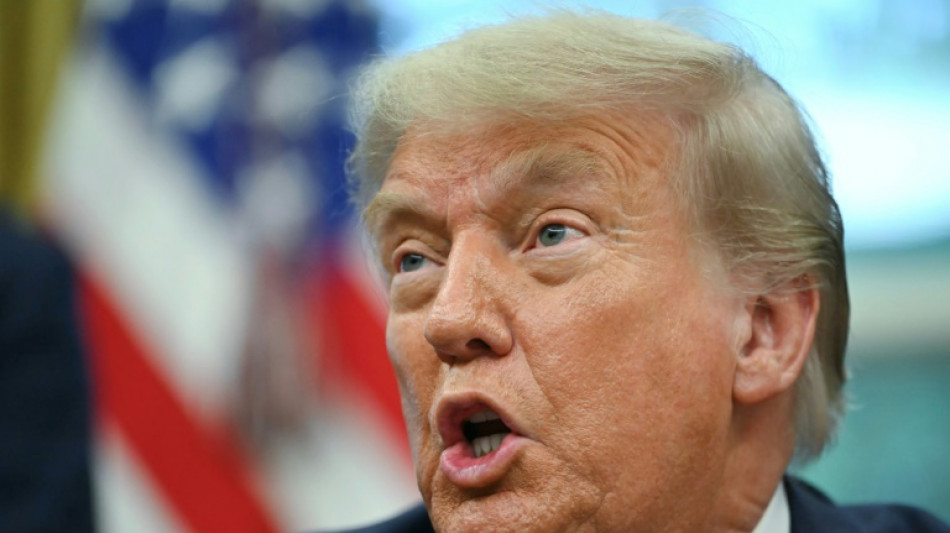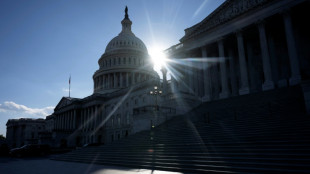

US Senate begins nail-biting vote on Trump spending bill
US senators began voting Monday on Donald Trump's flagship spending bill, as the deeply divisive package -- expected to slash social programs for the poor and add an eye-watering $3 trillion to the national debt -- entered its frenetic home stretch.
Trump wants what he calls the "One Big Beautiful Bill" to extend his expiring first-term tax cuts at a cost of $4.5 trillion to the budget, boost military spending and fund his plans for unprecedented mass deportations and border security.
Yet even as the process reaches its climax, Republican meeting rooms are still reverberating with bitter rows over the deep cuts to welfare programs planned to offset the bill's massive costs.
Senators eyeing 2026 midterm congressional elections are divided over savings that would strip some $1 trillion in subsidized health care from millions of the poorest Americans and add more than $3.3 trillion to the nation's already yawning budget deficit over a decade.
Trump wants to have the package on his desk by the time Independence Day festivities begin on Friday.
"ONE GREAT BIG BEAUTIFUL BILL, is moving along nicely!" he posted on his Truth Social platform late Sunday.
Given Trump's iron grip on the party, he is expected to get what he wants in the Senate where Republicans hold a razor-tight majority, while Democrats will overwhelmingly vote no.
It will be a huge win for the Republican leader -- who has been criticized for imposing many of his priorities through executive orders that sidestep the scrutiny of Congress.
But the vote on final passage will still be a nail-biter and can only take place after a marathon series of attempted amendments.
Known as a "vote-a-rama," the session allows senators to offer unlimited tweaks to the 940-page text for floor votes, meaning the process can extend well beyond 12 hours.
Even then, the Senate bill will have to pass a separate vote in the House of Representatives, where Republicans also have a narrow majority.
- 'Utterly insane' -
Trump's heavy pressure to declare victory has put more vulnerable Republicans in a difficult position.
Nonpartisan studies have concluded that the bill would ultimately pave the way for a historic redistribution of wealth from the poorest 10 percent of Americans to the richest.
And cuts to the Medicaid program -- which helps low-income Americans get coverage in a country with notoriously expensive medical insurance -- and cuts to the Affordable Care Act would result in nearly 12 million more uninsured people by 2034, independent analysis shows.
Polls show the bill is among the most unpopular ever considered across multiple demographic, age and income groups.
Senate Democrats are expected to focus their amendments on highlighting the threats to health care, as well as cuts to federal food aid programs and clean energy tax credits.
Senate Majority Leader John Thune can only lose one more vote with conservative Rand Paul and moderate Thom Tillis already on the record as Republican rebels.
Tillis, who has announced his retirement and no longer has to worry about reelection in 2026, delivered two fiery floor speeches Sunday slamming the phase-outs of clean energy tax credits and accusing Republicans of "betraying" Trump's promise not to touch Medicaid.
A House vote on the Senate bill could come as early as Wednesday. However, Republicans there face an equally tight vote-count, with ultra-conservative fiscal hawks complaining that the bill would not cut enough spending and moderates worried at the defunding of Medicaid.
World's richest person and former top Trump advisor Elon Musk -- who fell out with the president over the bill -- said the Senate text was "utterly insane" for seeking to gut government subsidies for clean energy.
"It gives handouts to industries of the past while severely damaging industries of the future," said Musk, who is the world's richest person, and heads electric vehicle company Tesla and space flight firm SpaceX, among others.
A.Vera--GBA



